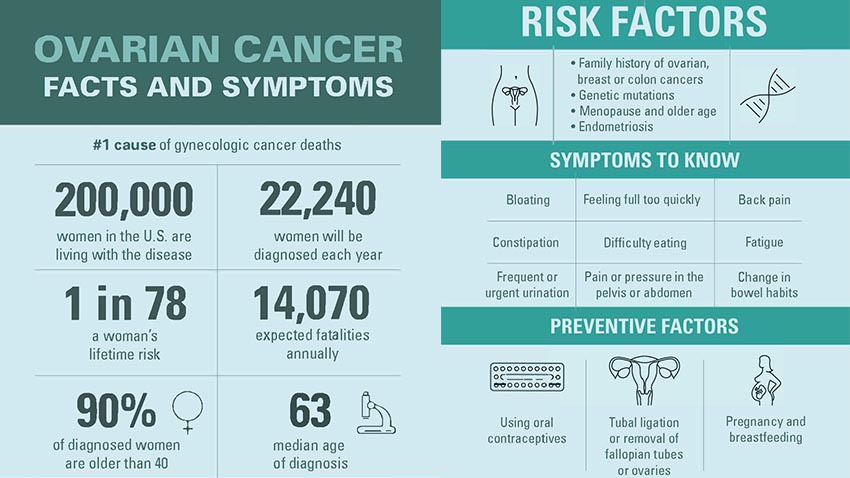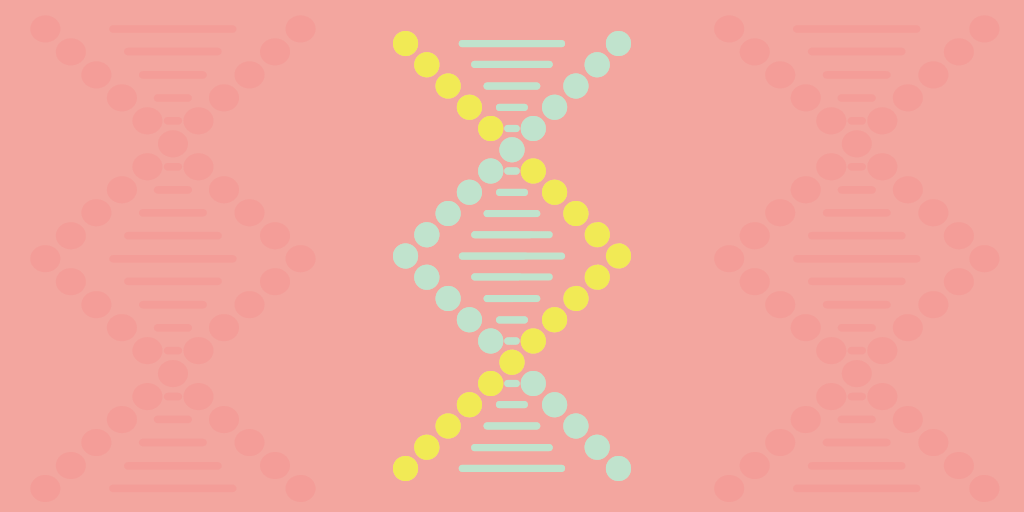Ovarian Cancer Symptoms and Risk Factors to Know
知道的迹象ovarian cancer and any inherited or lifestyle risks are key to early detection and treatment.

This article was updated on September 23, 2020.
Because there is no early detection test and most cases are found at advanced stages, ovarian cancer is particularly dangerous.
Ovarian cancer is the No. 1 cause of gynecologic cancer deaths and the fifth-highest cause of cancer deaths in women.
Although some risk factors are known, the disease shouldn’t be ignored.
“All women have the potential to get ovarian cancer,” saysKaren McLean, M.D., Ph.D., a gynecologic oncologist at the University of MichiganRogel Cancer Center. “Two of the most important things women can do are listen to their bodies and know their personal risks of getting the cancer.”
Ovarian cancer develops in the ovaries, fallopian tubes or the lining of the abdomen. The resulting cancer cells often float free and attach elsewhere in the body, which can prompt bloating, feelings of fullness and changes in bowel habits.
A woman should call her doctor if any symptoms persist for several weeks.
LISTEN UP: Add the newMichigan Medicine News Breakto your Alexa-enabled device, or subscribe to our daily audio updates oniTunes,Google PlayandStitcher.
“The earlier we detect the cancer, the more treatable it is,” says McLean,who leads theOvarian Cancer Initiativeat Michigan Medicine. The program fights for the lives of women with ovarian cancer through exemplary clinical care, a focus on patient quality of life and groundbreaking research and education.
For those diagnosed with ovarian cancer, it’s crucial to work with a gynecologic oncologist, McLean says. These specialists, she notes, are trained to guide treatment — typically both surgery and chemotherapy.
MORE FROM MICHIGAN: Subscribe to our weekly newsletter
Says McLean: “We’re understanding more and more about the genetics of the disease, not only about when it runs in families but also how mutations in the cancer can be targeted with specific medicines as better treatments for women.”

For more information about ovarian cancer, call the Cancer AnswerLine at 800-865-1125.
SOURCES:American Cancer Society,






